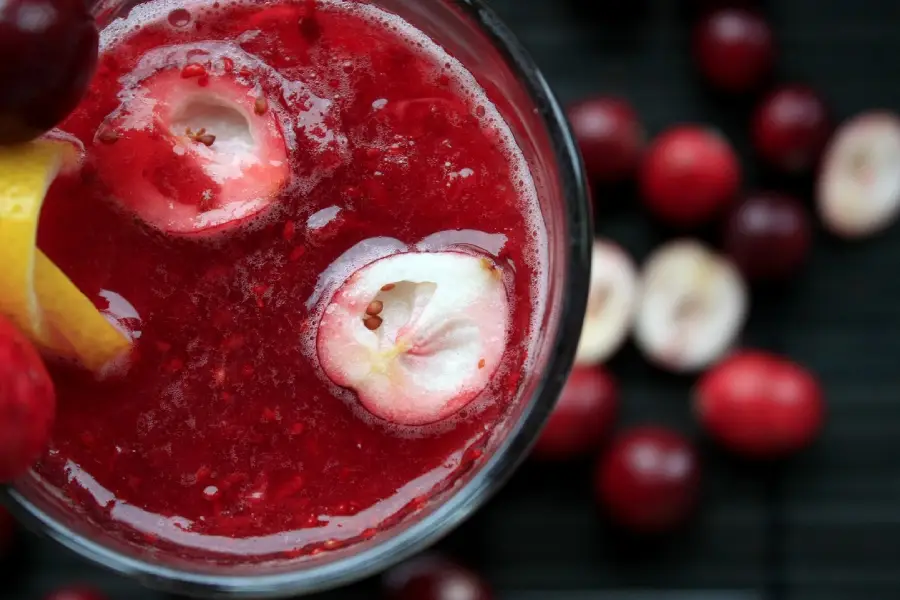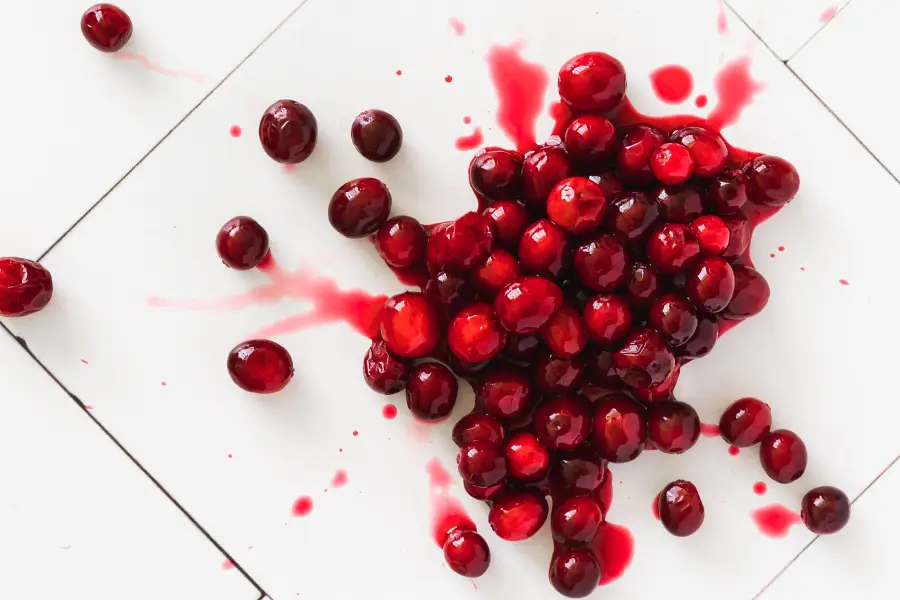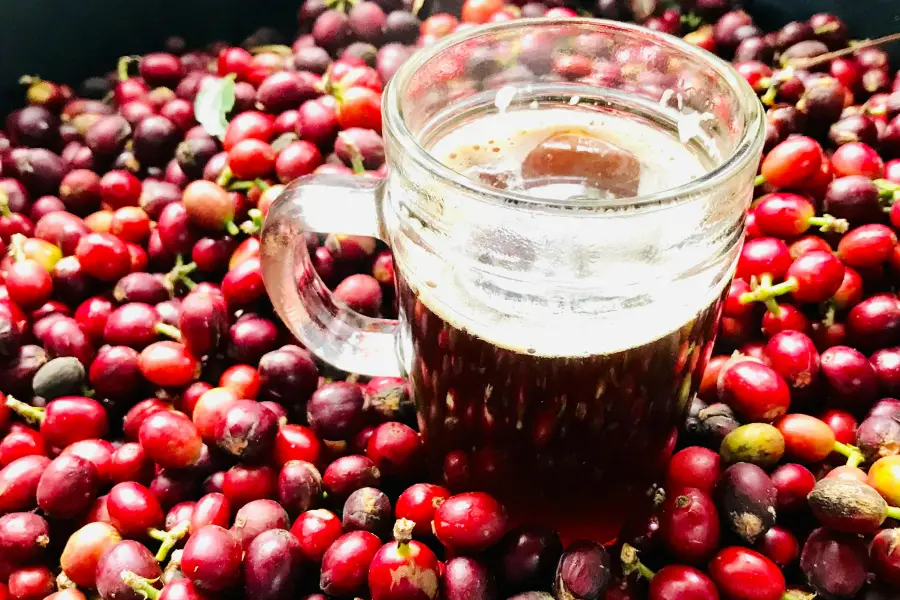
Does Cranberry Juice Help Yeast Infections?
Many women swear by cranberry juice as a home remedy for yeast infections. But does it really work? Let’s look at the science behind this popular folk cure.
Contents
What Is a Yeast Infection?
A yeast infection, also known as vaginal candidiasis, is a common condition caused by an overgrowth of a fungus called Candida. This fungus naturally lives in small amounts in the vagina and is kept in check by the body’s good bacteria. But when something upsets that delicate balance, the yeast can multiply out of control, causing uncomfortable symptoms.
The most common symptoms of a yeast infection include:
- Vaginal itching and burning
- Thick, white cottage cheese-like discharge
- Redness and swelling of the vagina and vulva
- Pain during sex or urination
While annoying, yeast infections are usually not serious. They can often be treated with over-the-counter antifungal medications. However, some women prefer to try home remedies first before resorting to drugs. This is where cranberry juice comes in.
Why Cranberry Juice?

Cranberries contain compounds that may help fight infections, including yeast infections. Specifically, cranberries are high in:
- Vitamin C – This antioxidant vitamin strengthens the immune system to help the body fight off infections.
- Proanthocyanidins – These plant chemicals prevent bacteria from adhering to surfaces like the vaginal walls. This may help flush out yeast.
- Fructose – The natural sugar in cranberries makes the vagina more acidic. Yeast dislikes acidic environments.
Additionally, some think the astringent, anti-inflammatory properties of cranberries provide soothing relief from yeast infection symptoms like itching and burning.
So, in theory, regularly drinking cranberry juice could help treat and prevent vaginal yeast overgrowth. But is this backed up by scientific research?
Does Cranberry Juice Help Yeast Infections?
Right now, the evidence that cranberry juice can treat or prevent vaginal yeast infections is weak. However, small studies have shown some potential benefits. Cranberry juice is also generally safe for most people.
While cranberry juice shouldn’t replace conventional treatments, adding some to your daily diet won’t hurt. At the very least, it provides vitamin C, antioxidants, and natural sugars.
If you want to try it:
- Use unsweetened 100% cranberry juice.
- Check with your doctor first if you have any medical conditions.
- See your doctor if symptoms don’t improve within a few weeks.
Cranberry juice may or may not help your yeast infection. But it won’t make matters worse. Including it in a comprehensive Candida treatment plan is a reasonable approach to test out this popular natural remedy.
Unfortunately, evidence that cranberry juice helps yeast infections is lacking. Most of the research has focused on cranberries and urinary tract infections (UTIs), not vaginal infections.
Here is a look at what the science says so far:
Test tube and animal studies
- Test tube studies show that cranberry Proanthocyanidins can inhibit the growth of Candida albicans, the yeast species that causes most vaginal infections.
- One study found that feeding cranberry extract to infected mice helped clear their yeast infections.
- However, large amounts of cranberry extract were used in these studies. It’s uncertain if normal cranberry juice consumption could produce the same benefits.
Human clinical trials
- A small study had women with recurrent yeast infections drink 8 ounces of cranberry juice daily for six months. Only about one-quarter of the women experienced a reoccurrence during this time. But the study did not include a control group, so it’s hard to draw conclusions.
- A recent double-blind trial found that women who drank a cranberry beverage daily for 60 days reduced vaginal Candida counts. But counts also decreased in the placebo group, suggesting cranberry may not be the reason.
- More extensive, more rigorous studies are still needed to evaluate if cranberry juice can prevent or treat yeast infections in humans. Current evidence is inconclusive at best.

Learn more: Alternative Approaches to Alleviate Muscle Discomfort and Inflammation.
Possible Risks and Considerations
Before trying cranberry juice for a yeast infection, there are some potential downsides to consider:
- Cranberries contain oxalates, which could worsen kidney or gallbladder problems in some individuals.
- Cranberry juice is high in natural sugar. Consuming large amounts may worsen blood sugar control.
- Drinking cranberry juice every day may make the urine more acidic. This could increase the risk of urinary tract infections (UTIs) in some women.
- Cranberry juice is acidic. Daily consumption may erode tooth enamel over time.
- Unsweetened cranberry juice has a very tart, sour taste. The taste may be unpalatable for some.
- Cranberry juice is expensive compared to other fruit juices. Regular consumption of it may lead to increased expenses.
- Evidence for effectiveness is fragile. Cranberry juice may end up being a good use of money.
So, while cranberry juice is generally considered safe for most healthy adults, there are some potential disadvantages. Talk to your doctor before trying it, especially if you have any medical conditions or take medications.
How to Use Cranberry Juice for Yeast Infections
If you want to give cranberry juice a try, here are some tips:
- Use unsweetened 100% cranberry juice, not cranberry cocktail juice, which contains added sugar and dilutes the benefits.
- Shake the bottle well before pouring. The therapeutic compounds tend to settle on the bottom.
- Drink around 8 ounces of cranberry juice daily. You can dilute it with water if the tartness bothers you.
- Continue drinking it for at least 2-4 weeks to allow time for the ingredients to take effect.
- Swish the juice around your mouth before swallowing to coat the oral cavity. This may help reduce yeast in the mouth and throat.
- Consider taking cranberry extract capsules rather than juice for convenience and consistency. Follow package directions.
- Cranberry juice is a holistic regimen, including probiotics, yogurt, and antifungal herbs like oregano oil.
- See your doctor if symptoms persist or worsen despite using cranberry juice. You may need prescription medication.